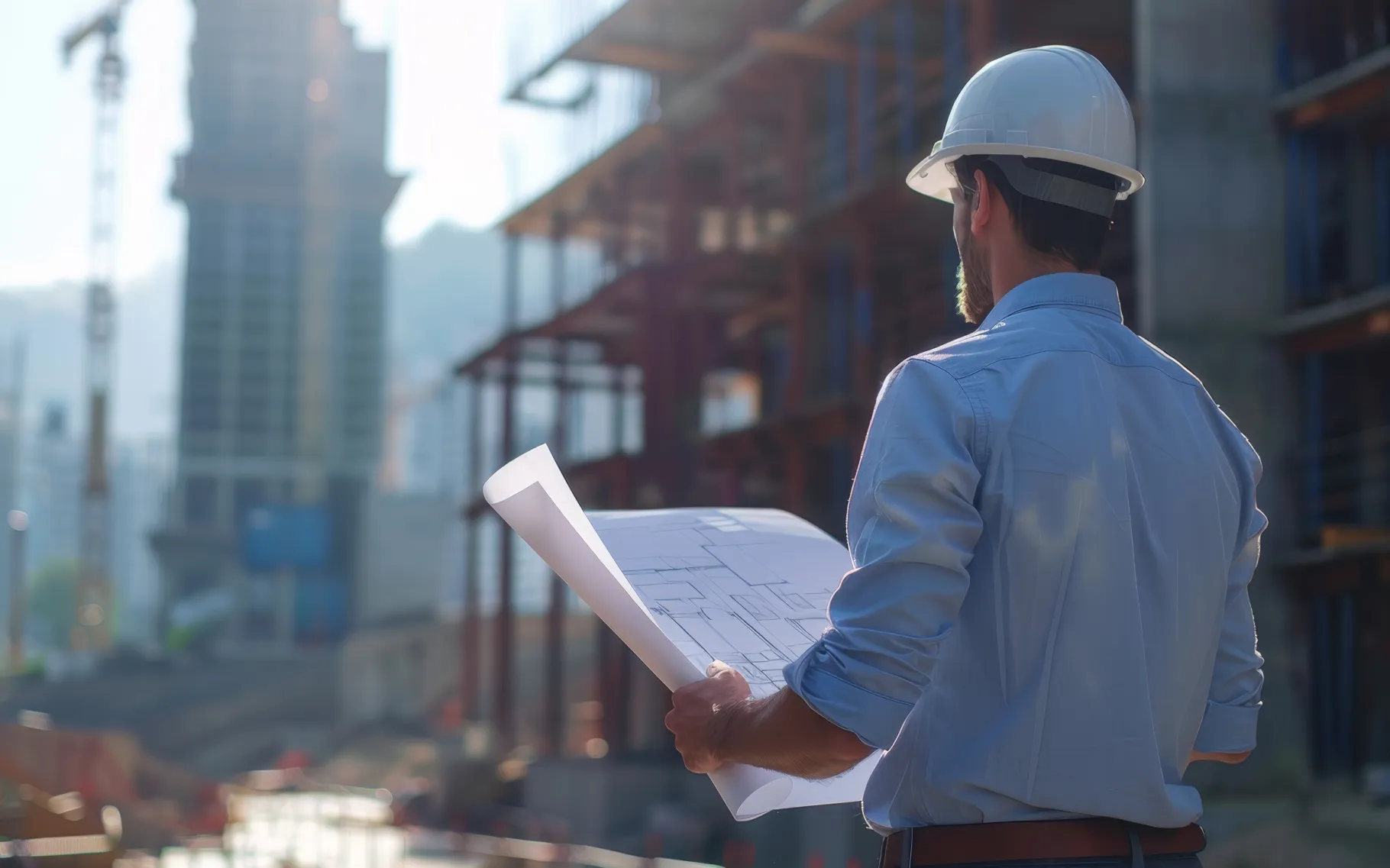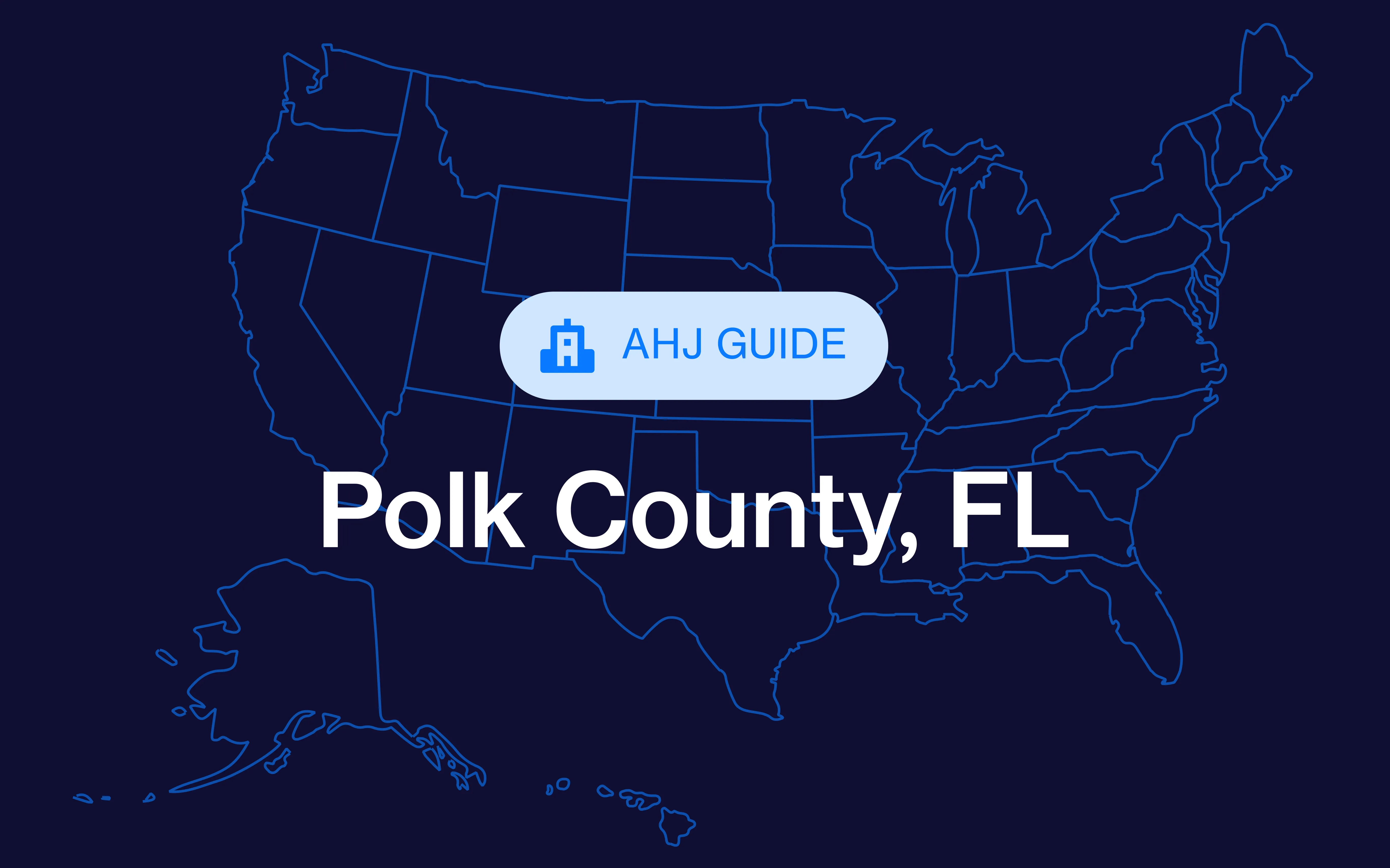You’ll need a construction permit to begin any project that involves constructing a new building or majorly renovating an existing structure.
Everyone from developers to owners to contractors should be familiar with the various types of building permits that might be required for their projects. Read on to learn about each of the four major types of construction permits and when you’ll need them.
What is a construction permit?
A construction permit is a document granted by a local government that gives permission to construct or alter a building. Without the proper construction permit, you cannot legally build or make certain renovations to a property.
Obtaining a construction permit entails submitting an application and getting it approved by your local government. This process can take anywhere from a couple of weeks to a few months, or even years in some cases. The appropriate department will assess your plans and grant you a construction permit if they’re deemed safe and compliant with local codes and laws.
Keep in mind that although this process can be tedious and time-consuming, there are construction permit services available to simplify and streamline it. For the best results, seek out permitting software that puts all your applications in one place and handles the tedious work for you.
When do you need a construction permit?
You’ll need a construction permit to build most types of new structures or to make certain changes to an existing structure.
For existing structures, simple changes — like repainting or installing carpeting — won’t require a permit. But more extensive additions, like building an ADU or finishing a basement, will likely require a construction permit.
Construction permit costs
The cost of a permit could range from a couple hundred dollars to a few thousand dollars.
Construction permit costs depend primarily on your jurisdiction and the type of permit you need for your project. For example, a construction permit for a large commercial project in a major city will likely cost more than a permit to develop a new single-family home in a small town.
4 main types of construction permits
Whether you’re the developer on a new construction project or the contractor for a major renovation project, you’ll need to be aware of the different kinds of construction permits out there.
The four primary types of construction permits are:
- Commercial permits
- Multifamily permits
- Residential permits
- Trade permits
1. Commercial permits
Commercial construction refers to any property that is intended for commercial activity rather than residential purposes. A commercial construction permit is required when building, renovating, or adding to any commercial property.
Commercial building permit requirements vary by state, local codes and policies, as well as the type of construction to be performed.
New commercial developments
If you’re developing a brand-new commercial building, you’ll need a new commercial property permit. This type of permit is needed when the specific kind of business that will use the new building is known — i.e. when developing a grocery store, a bank, or some other known business.
Foundation only
If you’re only planning to lay the foundation of a commercial property, you can apply for a foundation-only permit.
Commercial remodeling
When you’re planning to make extensive interior or exterior changes to an existing commercial building, you’ll need a commercial remodeling permit.
2. Multifamily permits
A multifamily property is similar to a commercial property in that it will generate income. However, it also provides residences.
Multifamily construction permits are required when building or renovating apartments, condos, and hotels.
Apartment and condo developments
An apartment building is any property with more than two dwelling units that are rented — not owned — by tenants. In contrast, a condo building has more than two dwelling units that generally are owned by the tenants.
If you plan to build either of these types of properties from scratch, you’ll need an apartment or condo construction permit.
Foundation only
Similarly to commercial construction, you may request a foundation-only permit for a multifamily property. This is ideal for situations where you’re still finalizing the construction plans but want to get a head start on the project.
Hotel and motels
Although a hotel is technically a commercial property because it generates income, hotels and motels are considered multifamily properties for permitting purposes because tenants reside in the dwelling units (even if just for a short time).
3. Residential permits
Residential building permits are required for any project that involves a single-family home or similar residential property without multiple dwelling units.
Custom home builds
A custom home is essentially a one-off home whose construction plans won’t be reused. If you’re developing a custom single-family home, this is the type of residential construction permit you’ll need.
Production home builds
While a custom home will only be built once, a production home is built according to master plans that are reused. As such, a production home build requires a slightly different permit than a custom home.
Foundation only
Once again, residential projects that don’t have approved plans can seek a foundation-only permit to get started.
Structure & interior demolition
If you plan to demolish an entire residential structure or a portion of a structure’s interior, you’ll need a demolition permit. The permit is needed to ensure that you’re safely demolishing and disposing of the materials.
Interior remodel
Any significant interior remodeling work requires this type of residential construction permit. If you’re not sure if your remodeling project requires a permit, be sure to check with your local building department.
Home daycare
While every state has its own laws and regulations regarding home daycare businesses, you’ll most likely need to obtain a permit if you plan to run a daycare out of your home.
The home daycare permit ensures that:
- There are proper fire safety measures in place
- Playgrounds and outdoor play areas are safe
- The home complies with building codes
Pools, spas, and hot tubs
Any permanent pool, hot tub, or spa added to a residential building requires a permit. Temporary pools and hot tubs — such as inflatable ones — will not need a permit.
4. Trade permits
A trade permit is any permit related to a specific component of the building. These trades require unique knowledge and procedures, so they require unique permits.
Mechanical permits
A mechanical permit applies to any mechanical work, including heating and cooling systems and ductwork.
You’ll need a mechanical permit in situations like:
- Installing an exhaust hood above a stove in a restaurant
- Replacing ductwork in an apartment building
- Installing a new heating system in an office building
Electrical permits
An electrical permit is needed when performing major electrical work on a building.
This could include:
- Wiring
- Transformers
- Lighting
Both residential and commercial properties often require electrical permits — though commercial properties may have more stringent requirements since their electrical needs are often more intensive.
Plumbing permit
You’ll need a plumbing permit when installing or upgrading plumbing systems in a new or existing structure.
Plumbing permits are often needed for projects that involve:
- Piping
- Sinks
- Toilets
- Drains
- Back-flow devices
Simplify the permitting process with PermitFlow
While we’ve provided a solid overview of the many kinds of construction permits out there, every state and municipality has its own unique laws and codes that impact the type of construction permit you’ll need for any given project.
That’s why you should consider working with a provider like PermitFlow. With our software, you'll save time navigating the permit preparation, submission, and tracking process across all municipalities you’re building in. With PermitFlow working for you, you save time and reduce costly errors.
Contact our permitting experts today to learn more.








